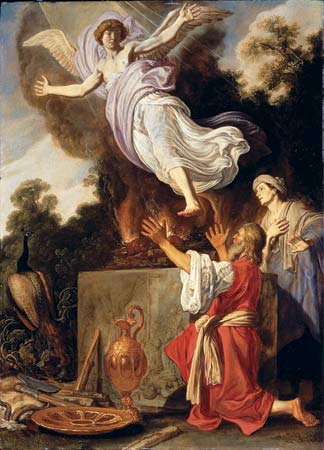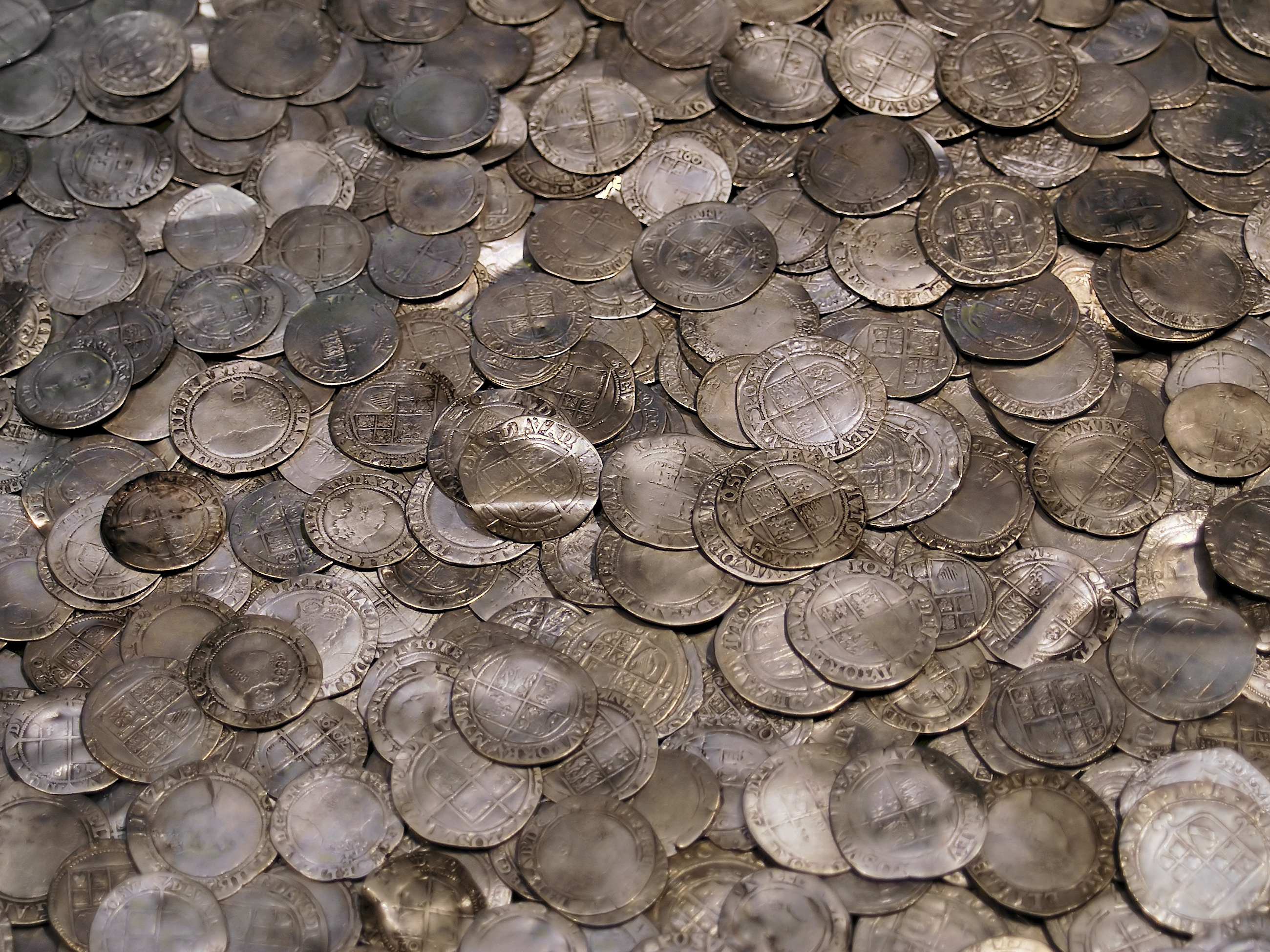And Abimelech the son of Jerubbaal (Gideon) went to Shechem to his mother’s relatives, and spoke to them and to the whole clan of the household of his mother’s father, saying, “Speak, now, in the hearing of all the leaders of Shechem, ‘Which is better for you that seventy men, all the sons of Jerubbaal, rule over you, or that one man rule over you?’ Also, remember that I am your bone and your flesh.” And his mother’s relatives spoke all these words on his behalf in the hearing of all the leaders of Shechem; and they were inclined to follow Abimelech, for they said, “He is our relative.” (Judges 9:1-3)
The famous judge, Gideon had many wives. From these he had seventy sons. He also had one extra son, Abimelech, by a concubine from Shechem. This son was considered an outcast by the seventy other sons, not only because his mother was a concubine and not a wife, but also because she was a foreigner – a Shechemite.
As soon as Judge Gideon was dead the Israelites went right back to their harlotry with false gods. They began another of the many cycles that are recorded in the book of Judges. A cycle began with peace from God, then the Israelites’ descent into idolatry, God’s judgment in the form of oppression by a foreign nation, the Israelites calling out to God for mercy and repenting, and God’s deliverance through a judge. As soon as the Israelites were at peace, they forget God and they started the decline into sinful rebellion against God’s goodness and mercy all over again. They never seemed to learn.
During the period of rebellion after Gideon’s judgeship, the Israelites “played the harlot with the Baals and made Baal-Berith their god” (Judges 8:33). There was no judge at this time and many cruel leaders arose to govern the Israelites. One of these was Abimelech, son of Gideon and his concubine. Abimelech was angry at the way he had been treated by his seventy brothers and turned to his mother’s kinsfolk in Shechem to help him become the leader in Israel. They gave him money and hired help. Abimelech went to his father Gideon’s house at Ophrah and killed all but one of his seventy brothers on one stone. Only the youngest son, Jotham, was saved because he hid himself. Abimelech reigned as a cruel tyrant for the next three years.
 Abinelech’s mother must have had great influence in Shechem. It was her brothers who were able to give Abimelech the encouragement, the money, and the manpower to kill the other seventy sons of Gideon. One has to wonder if much needless bloodshed could have been prevented if the other wives would have treated her with more respect. Were she and Abimelech outcasts because she was just a concubine? Were they outcasts because they were foreigners? Either way prejudice was shown against this woman by men who turned out to be idolators themselves. They were hypocrites to abuse people from Shechem when they were worshipping the Shechemite’s god instead of Jehovah.
Abinelech’s mother must have had great influence in Shechem. It was her brothers who were able to give Abimelech the encouragement, the money, and the manpower to kill the other seventy sons of Gideon. One has to wonder if much needless bloodshed could have been prevented if the other wives would have treated her with more respect. Were she and Abimelech outcasts because she was just a concubine? Were they outcasts because they were foreigners? Either way prejudice was shown against this woman by men who turned out to be idolators themselves. They were hypocrites to abuse people from Shechem when they were worshipping the Shechemite’s god instead of Jehovah.
We don’t know what happened to this mother in Judges, but she must have been special enough for Gideon to single her out as his concubine. Abimelech’s mother played her part in the history of Israel according to God’s providence.
Now the sons of Israel again did evil in the sight of the Lord, so that the Lord gave them into the hands of the Philistines forty years. There was a certain man of Zorah, of the family of the Danites, whose name was Manoah; and his wife was barren and had borne no children. Then the angel of the Lord appeared to the woman and said to her, “Behold now, you are barren and have borne no children, but you shall conceive and give birth to a son. Now therefore, be careful not to drink wine or string drink, nor eat any unclean thing. For behold, you shall conceive and give birth to a son, and no razor shall come upon his head, for the boy shall be a Nazirite to God from the womb; and he shall begin to deliver Israel from the hands of the Philistines.” (Judges 13:1-5).
Several cycles of disobedience, judgement, and rescue went by and the Israelites were again doing evil in the sight of the Lord. This time God planned for a special judge, Samson, to rescue His people from the Philistines. An Angel of the Lord appeared to the wife of Manoah and told her she would bear a son. He gave her special instructions for this son – he would be bound by a Nazirite vow right from her womb. This meant that Mrs. Manoah would have to follow the rules for Nazirites herself. She could not partake of anything from a vine, especially wine, and could not touch any unclean thing. She probably did not cut her hair either. When Samson was born she and Manoah would raise him the same way.
It seems that Manoah’s wife was the stronger of the two spiritually. She completely trusted the Angel of God, but Manoah was nervous about the arrangement. He  prayed for another visit from the Angel. The Angel of God graciously came to the wife a second time. She ran to tell Manoah. The Angel did not tell the couple anything new but only repeated the instructions he had given Manoah’s wife in the first place. Manoah tried to make a burnt offering but the Angel ascended in the flame on the altar back to heaven. This caused the couple to fall on their faces. Manoah thought that now they would die, “because we have seen God!” (Judges 13:22). Manoah’s wife knew better. “If the Lord had desired too kill us, He would not have accepted a burnt offering and a grain offering from our hands nor would He have shown us all these things, nor would He have told us such things as these at this time.” (Judges 13:23)
prayed for another visit from the Angel. The Angel of God graciously came to the wife a second time. She ran to tell Manoah. The Angel did not tell the couple anything new but only repeated the instructions he had given Manoah’s wife in the first place. Manoah tried to make a burnt offering but the Angel ascended in the flame on the altar back to heaven. This caused the couple to fall on their faces. Manoah thought that now they would die, “because we have seen God!” (Judges 13:22). Manoah’s wife knew better. “If the Lord had desired too kill us, He would not have accepted a burnt offering and a grain offering from our hands nor would He have shown us all these things, nor would He have told us such things as these at this time.” (Judges 13:23)
Samson’s mother carried him to birth in the manner commanded by the Angel. She and Manoah were apparently good parents, but as we know Samson was a rebellious child at least in one area. Manoah and his wife were unable to get Samson to marry a nice Israelite girl. We all know what happened.
The question could be asked, “Why wasn’t Samson’s father able to make him obey?” One clue comes from the story of the Angel’s visit to announce the coming of their child. Manoah was a weak man. His wife was the strong one but in those days the father ruled the family and the wife was only allowed influence but not the final say in matters. It seems that all of this was the providence of God. The Angel of God had told Manoah’s wife that her son would rescue the Israelites from the oppression of the Philistines. God just hadn’t told her how He would do it. How amazing that God would use Samson’s weakness for women as the way to destroy many Philistines. And how amazing that God did not use the “chain of command” of men over women in order to bring about His purposes. We have seen many other instances in the Old Testament where God worked directly with women. It is His choice and we should be careful not to press our preconceived notions on His actions. God chose Samson’s mother to bring His judge into the world at that time.
Now there was a man of the hill country of Ephraim whose name was Micah. He said to his mother, “The eleven hundred pieces of silver which were taken from you, about which you uttered a curse in my hearing, behold, the silver is with me; I took it.” And his mother said, “Blessed be my son by the Lord.” (Judges 17:1,2)
 Micah’s mother had dedicated 1100 shekels of silver to the making of graven images. Unbeknownst to her Micah had stolen the silver. She put a curse on the silver and this frightened Micah into returning it to her.
Micah’s mother had dedicated 1100 shekels of silver to the making of graven images. Unbeknownst to her Micah had stolen the silver. She put a curse on the silver and this frightened Micah into returning it to her.
Now Micah’s mother shows what a confused religion she is following. First she tries to take back her curse when she realizes her son has the silver. “May you be blessed by the Lord, my son!” (Judges 17:2). Apparently she at least paid lip service to Israel’s God by asking Him to bless her son. But is Jehovah just one of many gods to her? It seems that is the case because she then goes on to take two hundred shekels of the silver and have carved images made for Micah. Micah then took the carved image and made himself a shrine in his house. Micah continued to pretend to honor God while bowing down to the gods in his shrine. He disobeyed God by getting himself a priest to help him with this. Eventually his false gods were stolen by a wandering group from the tribe of Dan. (Recall that this was Samson’s tribe.) The Danites then set up the idols as rival gods to Jehovah.
We don’t know what happened to Micah’s mother after he moved out of the house. But her false religion was passed down to her son and then spread throughout much of that part of Israel. This story shows what comes of not following God wholeheartedly. What a contrast to Samson’s mother!
These three mothers all had a part to play in the history of Israel for better or for worse. Samson’s mother was a godly woman who followed God’s instructions faithfully. It was not her fault that her son did bad things. Abimelech’s mother had few choices in the raising of her son, but used her influence in an evil way when she had the chance. Micah’s mother seemed to have been at least confused about God. Perhaps with no leader in Israel at the time she just didn’t know how to worship God properly.
Thankfully we have God’s word and we know how to obey God. Let us be diligent in our obedience and faithful in our service as Samson’s mother.

